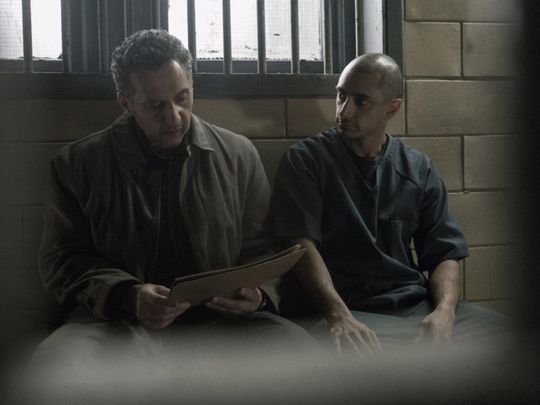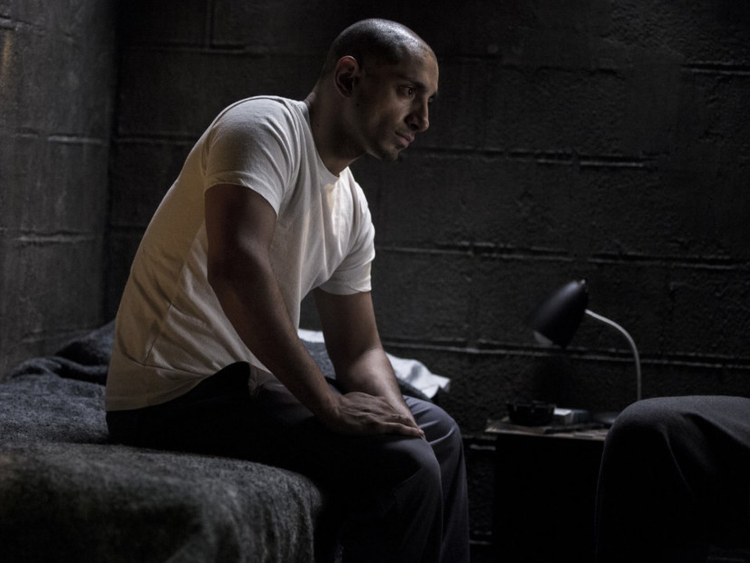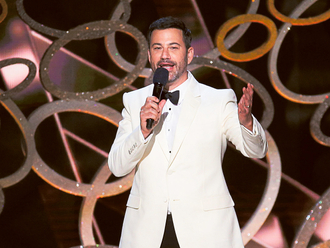
The crime and justice drama The Night Of that’s become HBO’s newest addictive thriller features an American Muslim character so complex that it’s still anyone’s guess as to whether he’s innocent or guilty of a crime that kicked off the series eight episodes ago.
The miniseries, which concludes on Sunday, created an unusually layered portrait not only of the lead character, Nasir Khan (played by Riz Ahmed), but also his working-class immigrant family caught up in a legal and moral nightmare.
Through subtle and nuanced storytelling, The Night Of has done what most every other series featuring American Muslim characters — Homeland, Sleeper Cell, Tyrant — has not: It’s made Muslims central to a story that has nothing to do with terror or war or Trump, given them depth, and rendered them human.
Khan is a seemingly clean-cut college student who lives a quiet life at home with his Pakistani parents in Queens until the night he takes his father’s cab out for a joyride. He meets a girl in Manhattan, tries drugs, sleeps with her, then blacks out, only to discover when he wakes up that she’s been brutally stabbed to death.
Charged with murder, Khan’s story becomes a tense odyssey through the justice system, the penal system and the ways in which race and class play out in both.
The series couldn’t have come at a more fitting time, given the gross misrepresentation of Muslims on the campaign trail and otherwise. Night Of creators Richard Price and Steven Zaillian began work on the limited series well before Trump made banning new Muslim immigrants a selling point and ignorance about the faith and its followers was revealed en masse at political rallies, on social media and in polls.
And while Islamophobia plays a role here, it’s the individual thoughts and actions of Khan, his family and his Jackson Heights neighbourhood that make the characters rather than the social commentary central to the show’s success.
When a prosecutor dredges up a violent incident involving Khan and another student back in middle school, Khan’s answer makes the topical personal:
“I was in fifth grade when the towers came down,” explains Khan about the violent incidents from his past. “I didn’t understand why I was getting beat up, why my little brother was, why my dad got jumped in his cab twice. Pakistani kids, North African kids, any type of Muslim, it was a slaughterhouse. You tried to fight back, it only made it worse.
“I didn’t have a fight with Steve Diaz, I just shoved him down those stairs. Why? Because I just did. I wish I could tell you something else, but I just did it. It was like pushing open a door. You just push it.”
Khan is the fictional counterpart of Adnan Syed, a real-life young Pakistani American student who was convicted of murdering his ex-girlfriend in Maryland and became a household name after his case was explored on NPR’s wildly popular podcast, Serial.
As with Syed, suspicions about Khan’s culture and faith come to the fore throughout his case. And as with Syed, Khan is denied bail for being an overseas flight risk, despite never knowing any home other than the US The Night Of takes many of the same scenarios and personifies the fallout through Khan and his family.
Their world is a slice of New York that has little to do with the high rises of Manhattan or the hipsters of Brooklyn. It’s the outer boroughs where of second-generation kids strive to meet their hard-working, immigrant parents expectations. Kahn’s father is a cabbie, part of a subculture of Muslims from South Asia and the Middle East. They are today’s version of the Jewish tailors, Irish cops and Italian restaurant workers who once made up Manhattan’s immigrant work force.
When Khan is arrested and becomes a tabloid headline, worlds collide: Cabbies are the victims of hate crimes, family incomes are ruined, entire communities are guilty by association. If only TV and Hollywood were always this detail oriented with their Muslim storylines.
If The Night Of had not cast a Muslim in the lead, it would likely have been just as expertly crafted and suspenseful. But with the Khans, uncomfortable social truths are exposed about the way we politicise a people with little thought to their reality on the ground. That’s not to say that Khan is the victim here. For all we know, the straight-A student could also be a killer. Like everyone, Muslims are a bundle of contradictions.
It must have been a tricky balancing act, because The Night Of doesn’t go too far the other way either, by promoting simplistic positive images to counterbalance all the bad ones in the media. That would compromise the depth of the characterisation of Nasir Khan, which is the true landmark achievement of this remarkable series.
Don’t miss it!
In the UAE, The Night Of airs on Mondays on OSN First HD at 10pm.













